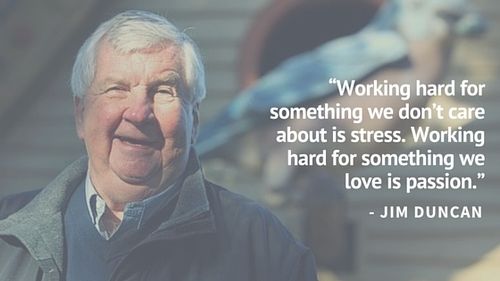Jim Duncan: Life Lessons in Business, Business Lessons in Life
River City Rising

Listening to Jim Duncan speak of how he helped turn the Memphis Botanic Garden into a local and national award-winning space revealed many lessons revisited, many lessons learned. As he spoke about the specific steps that were taken to turn Memphis Botanic Garden into a thriving success, it was clear that much of what Duncan considered important guiding lights for business could be used as guidance for life in general. Here are a few of those life lessons in business, or business lessons in life.
Isn’t it interesting (and exciting!) that the same financial rules implemented to create a successful business can also bring about personal finance success?
In 2014 Memphis Botanic Garden was voted one of the 25 most beautiful gardens in the United States. Duncan explains that this could not, and would not, have happened if those working at MBG did not believe in its mission and inherent value. He states that before results can occur, people’s behavior must change, which is influenced by a change in attitude, which comes about only when people at the organization believe that what is being done is important. He quotes Simon Sinek to emphasize the difference in attitude and outcome, based on how much we believe in what we’re doing:
“Working hard for something we don’t care about is stress. Working hard for something we love is passion.”
I thought I’d come to learn about how to run a profitable business. I walked away from Duncan’s presentation with an understanding of tenets that lead to a productive life.
Jim Duncan retired in 2015 after ten years as executive director of the Memphis Botanic Garden. He has been credited as the person primarily responsible for funding of successful children’s space My Big Backyard and the permanent stage for Live at the Garden. He now works as a private management consultant.
- Management Principle #1: Always tell the truth; that way you don’t have to keep your story straight.
- We are on a constant “Search for Excellence.” The truth is, most urgent decisions are made from a blinding flash of the obvious. This revelation reminded me of our constant struggle with our instinctive voice, that quiet yet loud voice that tells us which way to turn- or not. We often second-guess, wondering if obeying that voice will cause us to flourish or fail. I believe that most of the time this voice is just reassuring us to take note of the obvious and act on it.
- Duncan shared some well-known wisdom passed down through generations of the Dakota people: “When you find out the horse you’re riding is dead, just dismount.” Though he used this to explain several of the tough, yet necessary, budgetary decisions required to bring Memphis Botanic Garden to a place of profit, it can certainly be applied to our everyday lives. I can think of several dead horses I had difficulty dismounting; when I finally did, it opened the space for a working horse to take its place.
- In the area of finances, there were several great pieces of wisdom communicated:
- ALL decisions have financial implications. Notice the emphasis on ALL?!
- When trying to overhaul a seemingly failing system, employ a 0-based budgeting system- all previous records are put away and you start from scratch. This reminded me of the first rule given to new users of award-winning budget interface system YNAB, “The past is the past! You don’t need to budget for things that already happened before you started your YNAB Budget.”
Isn’t it interesting (and exciting!) that the same financial rules implemented to create a successful business can also bring about personal finance success?
In 2014 Memphis Botanic Garden was voted one of the 25 most beautiful gardens in the United States. Duncan explains that this could not, and would not, have happened if those working at MBG did not believe in its mission and inherent value. He states that before results can occur, people’s behavior must change, which is influenced by a change in attitude, which comes about only when people at the organization believe that what is being done is important. He quotes Simon Sinek to emphasize the difference in attitude and outcome, based on how much we believe in what we’re doing:
“Working hard for something we don’t care about is stress. Working hard for something we love is passion.”
I thought I’d come to learn about how to run a profitable business. I walked away from Duncan’s presentation with an understanding of tenets that lead to a productive life.
Jim Duncan retired in 2015 after ten years as executive director of the Memphis Botanic Garden. He has been credited as the person primarily responsible for funding of successful children’s space My Big Backyard and the permanent stage for Live at the Garden. He now works as a private management consultant.